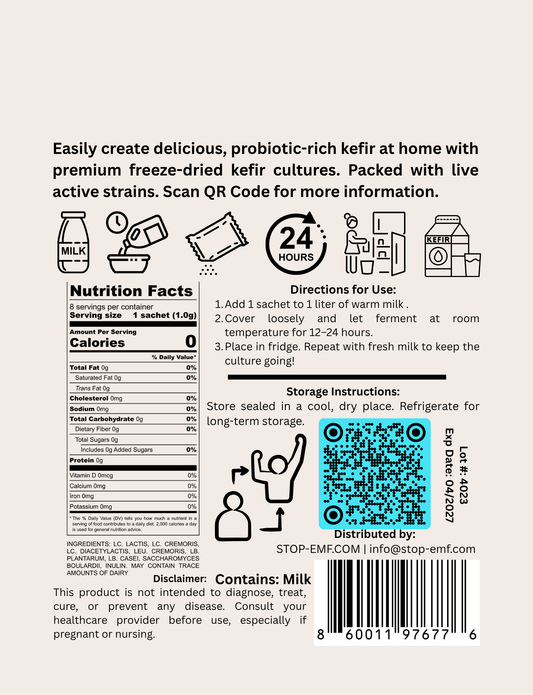As the winter season approaches, many of us find ourselves battling a host of health issues, from the common cold to the flu. While it's easy to attribute these seasonal ailments to the colder temperatures, the reality is that the winter environment presents a unique set of challenges that can significantly impact our overall well-being. In this comprehensive blog post, we'll explore the various environmental factors that contribute to the increased susceptibility to illness during the winter months.
The Drying Effect of Winter Air
One of the primary reasons why we tend to get sicker in the winter is the drying effect of the air. During the colder months, the air typically has a lower humidity level, which can have a detrimental impact on our respiratory system. The dry air can irritate the delicate mucous membranes in our nasal passages and throat, making them more vulnerable to infection.
Moreover, the dry air can also lead to a decrease in the production of protective mucus, which plays a crucial role in trapping and expelling harmful pathogens. This can make us more susceptible to respiratory infections, such as the common cold and the flu.
To combat the drying effects of winter air, it's important to maintain proper hydration and consider using a humidifier to add moisture to the air, especially in our living and work spaces.
The Stress of Cold Exposure
Another significant factor that contributes to our increased susceptibility to illness in the winter is the stress of cold exposure. When our bodies are exposed to prolonged periods of cold, it can trigger a physiological response that can weaken our immune system.
The body's natural response to cold is to divert blood away from the extremities and towards the core to maintain core body temperature. This can lead to a decrease in blood flow to the skin and mucous membranes, which are our first line of defense against pathogens.
Additionally, the body's stress response to cold can also lead to the release of cortisol, a hormone that can suppress the immune system. This can make us more vulnerable to infections, particularly respiratory illnesses.
To mitigate the effects of cold exposure, it's crucial to dress appropriately, wear layers, and limit prolonged exposure to the cold. Engaging in regular physical activity can also help to maintain a healthy immune system and improve overall resilience to winter-related illnesses.
The Seasonal Presence of Allergens
While many people associate allergies with the spring and summer months, the winter season also brings its own set of allergens that can contribute to our increased susceptibility to illness.
During the winter, indoor allergens, such as dust mites, mold, and pet dander, can become more prevalent as we spend more time indoors. These allergens can trigger an inflammatory response in the body, which can weaken the immune system and make us more vulnerable to infections.
Furthermore, the dry winter air can also exacerbate the symptoms of seasonal allergies, leading to increased nasal congestion, sneezing, and coughing, which can make us more susceptible to respiratory infections.
To manage seasonal allergies during the winter, it's important to maintain a clean and well-ventilated living environment, use air purifiers, and consider taking over-the-counter antihistamines or consulting with a healthcare professional for more personalized allergy management strategies.
The Increased Presence of Airborne Pathogens
One of the most significant factors that contribute to the increased incidence of illness during the winter months is the increased presence of airborne pathogens. During the colder months, people tend to spend more time indoors, in closer proximity to others, which can facilitate the spread of respiratory viruses and bacteria.
Additionally, the colder temperatures and lower humidity levels can help certain pathogens, such as the influenza virus, to survive and thrive better in the environment. This can lead to a higher concentration of these pathogens in the air, increasing the likelihood of exposure and infection.
To reduce the risk of contracting airborne illnesses during the winter, it's important to practice good hygiene, such as frequent handwashing, covering coughs and sneezes, and avoiding close contact with individuals who are sick. Additionally, ensuring proper ventilation and air filtration in indoor spaces can help to reduce the concentration of airborne pathogens.
The Impact of Temperature Fluctuations
Another environmental factor that can contribute to our increased susceptibility to illness during the winter is the frequent temperature fluctuations that occur during this season.
As we move between the cold outdoor environment and the warmer indoor spaces, our bodies are subjected to rapid temperature changes. This can put a strain on our thermoregulatory system, which can weaken our immune response and make us more vulnerable to infections.
Furthermore, the sudden changes in temperature can also lead to physical discomfort, such as chills and shivering, which can further compromise our body's ability to fight off pathogens.
To mitigate the effects of temperature fluctuations, it's important to dress in layers and gradually adjust to changes in temperature, rather than exposing our bodies to sudden and extreme temperature shifts.
The Seasonal Decline in Vitamin D Levels
One often overlooked environmental factor that can contribute to our increased susceptibility to illness during the winter is the seasonal decline in vitamin D levels.
Vitamin D is a crucial nutrient that plays a vital role in supporting our immune system. During the summer months, our bodies can synthesize vitamin D through exposure to sunlight. However, as the days grow shorter and the sun's rays become less intense during the winter, our ability to produce vitamin D naturally decreases.
This seasonal decline in vitamin D levels can have a negative impact on our immune function, making us more susceptible to a variety of illnesses, including respiratory infections.
To maintain optimal vitamin D levels during the winter, it's important to consider taking a vitamin D supplement or consuming foods rich in this essential nutrient, such as fatty fish, egg yolks, and fortified dairy products.
The Increased Prevalence of Seasonal Pathogens
Finally, the winter season is also characterized by the increased prevalence of certain seasonal pathogens, which can contribute to our increased susceptibility to illness.
For example, the influenza virus, which causes the flu, is known to peak during the winter months. This is due to a combination of factors, including the virus's ability to survive and spread more effectively in colder, drier air, as well as the increased time spent indoors and in close proximity to others.
Similarly, other respiratory viruses, such as the respiratory syncytial virus (RSV) and the common cold, also tend to be more prevalent during the winter season.
To protect ourselves from these seasonal pathogens, it's important to stay up-to-date with recommended vaccinations, such as the flu shot, and to practice good hygiene and social distancing measures, especially during periods of high disease activity.
In conclusion, the winter season presents a unique set of environmental challenges that can significantly impact our overall health and well-being. By understanding the various factors that contribute to our increased susceptibility to illness during this time of year, we can take proactive steps to mitigate the risks and maintain our health throughout the colder months.
Whether it's addressing the drying effects of winter air, managing the stress of cold exposure, or taking steps to boost our immune system, there are numerous strategies we can employ to stay healthy and resilient during the winter season.
By prioritizing our health and well-being, we can not only reduce the burden of winter-related illnesses but also enjoy the beauty and wonder of the colder months with greater vitality and enjoyment.






